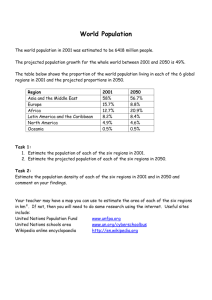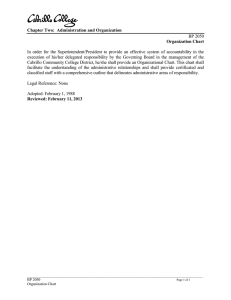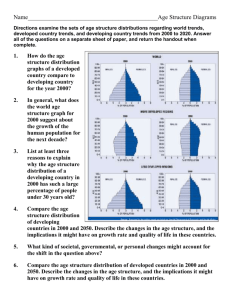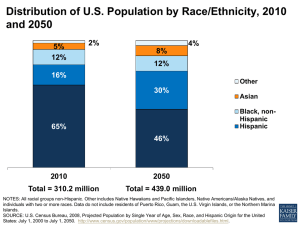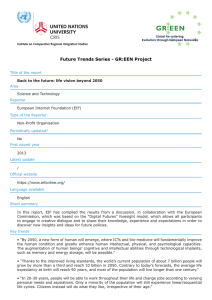U.N. Study Projects World Population Will to 9 Billion
advertisement
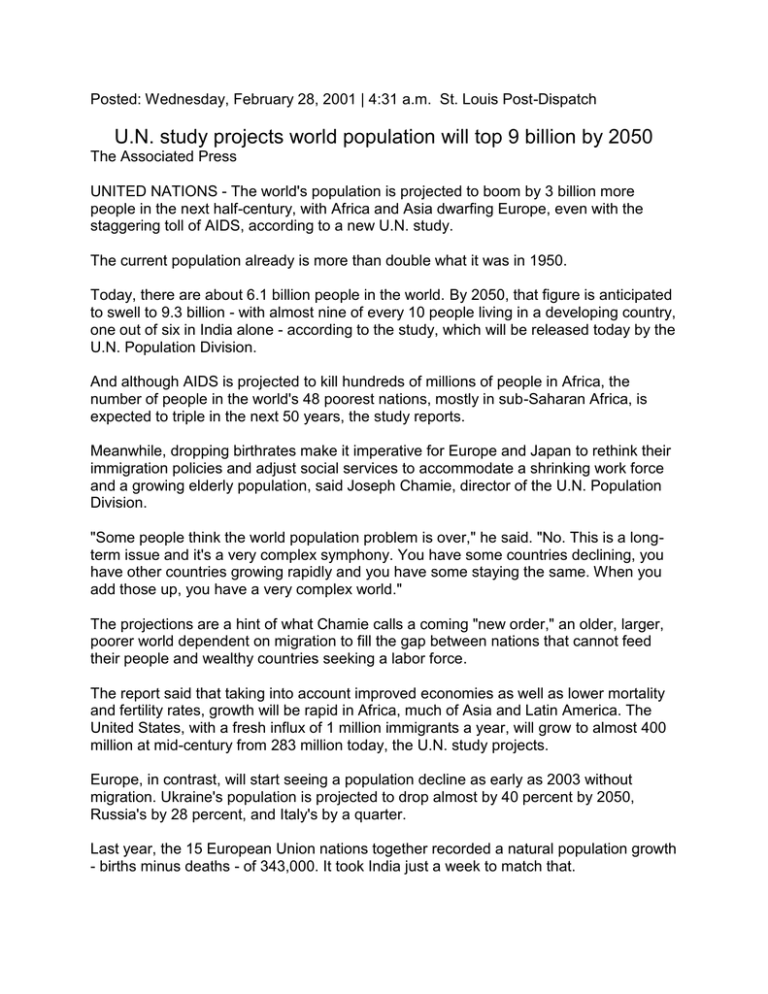
Posted: Wednesday, February 28, 2001 | 4:31 a.m. St. Louis Post-Dispatch U.N. study projects world population will top 9 billion by 2050 The Associated Press UNITED NATIONS - The world's population is projected to boom by 3 billion more people in the next half-century, with Africa and Asia dwarfing Europe, even with the staggering toll of AIDS, according to a new U.N. study. The current population already is more than double what it was in 1950. Today, there are about 6.1 billion people in the world. By 2050, that figure is anticipated to swell to 9.3 billion - with almost nine of every 10 people living in a developing country, one out of six in India alone - according to the study, which will be released today by the U.N. Population Division. And although AIDS is projected to kill hundreds of millions of people in Africa, the number of people in the world's 48 poorest nations, mostly in sub-Saharan Africa, is expected to triple in the next 50 years, the study reports. Meanwhile, dropping birthrates make it imperative for Europe and Japan to rethink their immigration policies and adjust social services to accommodate a shrinking work force and a growing elderly population, said Joseph Chamie, director of the U.N. Population Division. "Some people think the world population problem is over," he said. "No. This is a longterm issue and it's a very complex symphony. You have some countries declining, you have other countries growing rapidly and you have some staying the same. When you add those up, you have a very complex world." The projections are a hint of what Chamie calls a coming "new order," an older, larger, poorer world dependent on migration to fill the gap between nations that cannot feed their people and wealthy countries seeking a labor force. The report said that taking into account improved economies as well as lower mortality and fertility rates, growth will be rapid in Africa, much of Asia and Latin America. The United States, with a fresh influx of 1 million immigrants a year, will grow to almost 400 million at mid-century from 283 million today, the U.N. study projects. Europe, in contrast, will start seeing a population decline as early as 2003 without migration. Ukraine's population is projected to drop almost by 40 percent by 2050, Russia's by 28 percent, and Italy's by a quarter. Last year, the 15 European Union nations together recorded a natural population growth - births minus deaths - of 343,000. It took India just a week to match that. Fifty years ago, Europe claimed 22 percent of the world's population, Africa just 8 percent. In 50 years, Africa will have three times as many people as Europe, even though AIDS is anticipated to cut Africa's population growth by 15 percent by 2050. "It's like a mortality avalanche from the HIV/AIDS epidemic," Chamie said. "Despite that, you see Africa going from about 800 million to 2 billion" by 2050. Without AIDS, that figure would be 300 million higher, Chamie said. Meanwhile, the industrialized world - Europe, North America, Japan, Australia and New Zealand - will face an aging population. A fifth of Europe was age 60 or older in 1998; by 2050, that figure could jump to 37 percent, the report predicted.
